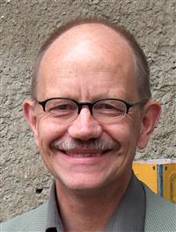
Today, 17 July 2012, Nils Petter Gleditsch, Research Professor at PRIO and former editor of the Journal of Peace Research turns 70 years. He was born 17 July 1942 in Sutton, Surrey, Great Britain.
The celebration coincides with the 76th anniversary for the outbreak of the Spanish Civil War, in which his mother Nini Haslund Gleditsch served by organizing international humanitarian aid. His father Kristian Gleditsch served as secretary for the Norwegian Support Committee for Spain.
Nils Petter has been at the Peace Research Institute Oslo (PRIO) continuously since 1964, first as a student, later as researcher and research leader. He was Director of PRIO in 1972 and 1977–78. He was the main initiator of PRIOs Centre for the Study of Civil War, the first ever Norwegian Centre of Excellence in the social sciences. Appropriately enough Nils Petter’s celebration also coincides with the celebration of CSCWs 10th anniversary and termination as a CoE.
He studied under and worked for several of the founding fathers of peace research, among them Johan Galtung, J. David Singer and Rudolph Rummel. Among his more spectacular achievements is his 1982 conviction for violation of the national security paragraphs of the penal code, in the Wilkes/Gleditsch trial. His prison sentence was suspended.
Gleditsch has established himself as a leading research authority on the ‘democratic peace’ (e.g. Hegre et al., 2001: ‘Toward a Democratic Civil Peace?’; Gleditsch and Hegre, 1997: ‘Peace and Democracy: Three Levels of Analysis’) and on environmental conflict (e.g. Gleditsch, 1998: ‘Armed Conflict and The Environment: A Critique of the Literature’). He was also instrumental in the backdating of the UCDP-PRIO dataset to 1945, producing the most used conflict dataset in the world and one of the most cited articles in International Relations during the last decade (Gleditsch et al., 2002: ‘Armed Conflict 1946–2001: A New Dataset’).
After a brief period as editor in 1976–77, Nils Petter Gleditsch took charge of the Journal of Peace Research beginning with the 1983 volume. His editorship lasted until 2010. JPR was founded in 1964 by Johan Galtung, a mentor and teacher for Nils Petter, and has since been owned by and edited at PRIO. Over the 25 years of Gleditsch’s editorship, the journal has made its way to the core of international relations research. In the last few years, JPR has regularly been among the ten most cited journals in both the international relations and political science categories. Under his editorship, JPR has been an important vehicle for the publication of replication data sets. Since 1998, authors of JPR articles have been required to post online any data they use.
Nils Petter Gleditsch has been the recipient of many honors and prizes. He received the Lewis Fry Richardson Lifetime Achievement Award in 2006, awarded by the ECPR’s Standing Groups on Analytical Politics and International Relations. He was elected to the Royal Norwegian Society of Sciences and Letters in 1998 and to the Norwegian Academy of Science and Letters in 2007. In 2009 he was the sole recipient of the Research Council of Norway’s award for research excellence, and he served as President for the International Studies Association (ISA) 2008–09.
His role in building a strong peace research community in Norway is unprecedented. Gleditsch was appointed Professor II in the Sociology/Political Science department at NTNU Trondheim in 1993. Close to 50 graduate students in political science, sociology, economics, and history have been officially supervised by him, and many others have benefited from his informal supervision.
Nils Petter is formally retiring from PRIO in July 2012, but will continue to be affiliated with the institute, working primarily on a Norwegian-language book on the decline of war.
Nils Petter Gleditsch will be celebrated with a research seminar at PRIO on Friday 17 August. In Nils Petter’s spirit, the topic is on the measurement of quality in academia: ‘Troverdighet og tellekanter i akademia: Hvordan media, oppdragsgiverne og forskerne selv vurderer kvalitet’.





